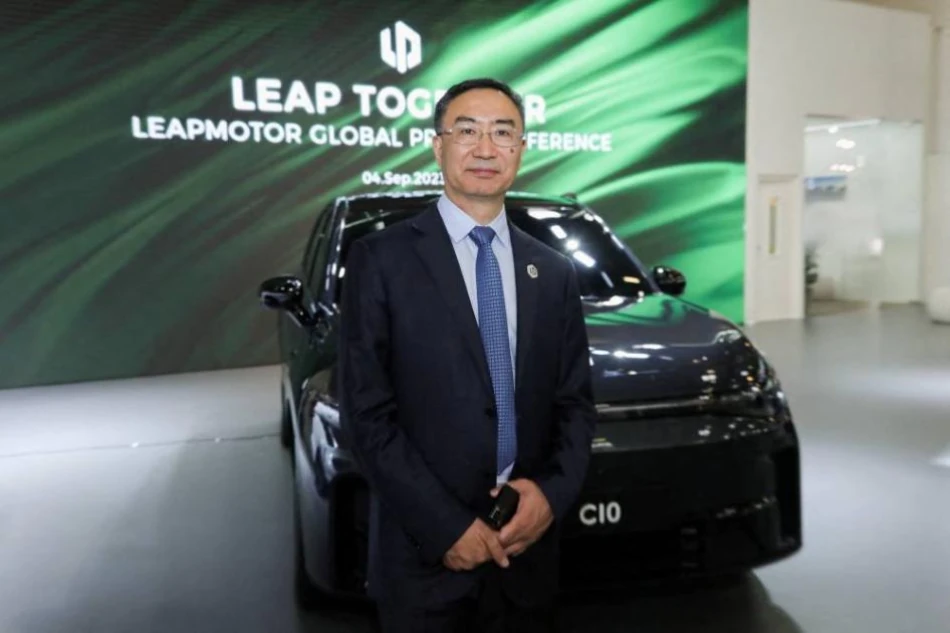
China's Rising Electric Vehicle Star: Leapmotor Accelerates Sustainable Mobility
Chinese EV Dark Horse Leapmotor Doubles Stock Price, Sets Sights on 500,000 Vehicle Sales
Zhejiang Leapmotor, once a marginal player in China's crowded electric vehicle market, has emerged as 2024's surprise winner among EV startups, outpacing established rivals like XPeng and Xiaomi with doubled stock prices and ambitious expansion plans. The company's meteoric rise signals a new phase in China's EV consolidation, where vertical integration and cost efficiency are trumping brand recognition.
From Zero to Hero: A Stunning Market Turnaround
Leapmotor's Hong Kong-listed shares have doubled since January 2024, delivering returns that overshadow more prominent Chinese EV names. The stock has surged over 200% from its August 2023 lows, closing Friday at HK$65.40 ($8.36 USD). This performance places Leapmotor among the year's top-performing automotive stocks globally, a remarkable achievement for a company founded just a decade ago.
The surge reflects investor confidence in Leapmotor's execution capabilities as China's EV market matures beyond the early adoption phase into mass-market competition.
Aggressive Growth Targets Signal Market Confidence
Leapmotor has raised its 2025 sales target to 500,000 vehicles, a 72% jump from approximately 290,000 units in the previous year. More significantly, the company expects to report its first annual profit—a milestone that has eluded many EV startups globally, including some that have been operating longer.
This profitability target distinguishes Leapmotor from competitors still burning cash to gain market share. The company's path to profitability suggests it has cracked the code on sustainable EV manufacturing economics.
Vertical Integration: The Secret Weapon
Leapmotor's competitive advantage stems from an aggressive vertical integration strategy, with the company producing a significant portion of components in-house. This approach mirrors Tesla's manufacturing philosophy but takes it further by leveraging China's electronics supply chain advantages.
The Founder's Electronics Edge
Co-founder Zhu Jiangming brings deep expertise in electronics and software—backgrounds increasingly critical as vehicles become computers on wheels. His experience has driven Leapmotor's R&D efforts toward developing proprietary technologies rather than relying on expensive third-party suppliers.
This technical leadership differentiates Leapmotor from competitors who primarily focus on design and assembly while outsourcing core technologies.
Market Implications: China's EV Sector Matures
Leapmotor's success reflects broader trends in China's EV market evolution. As government subsidies fade and competition intensifies, companies with strong operational fundamentals are separating from those dependent on marketing and venture funding.
The company's rise parallels similar consolidation patterns in other maturing tech sectors, where initial hype gives way to execution-focused competition. Investors are increasingly rewarding companies that demonstrate clear paths to profitability over pure growth metrics.
Global Context: Learning from International EV Struggles
Leapmotor's trajectory contrasts sharply with EV startup struggles in the US and Europe, where companies like Rivian and Lucid have faced production challenges and market skepticism. The Chinese company's focus on cost efficiency and vertical integration offers a different model from the premium-first strategies that have challenged Western EV startups.
This approach positions Leapmotor well for potential international expansion, particularly in price-sensitive emerging markets where Chinese manufacturers have historically succeeded.
Investment Outlook: Sustainable Growth or Temporary Surge?
Leapmotor's stock performance and operational improvements suggest the company has moved beyond speculative investment into sustainable business territory. The combination of rising sales targets, expected profitability, and proven cost advantages creates a compelling investment narrative.
However, the company still faces challenges from established players like BYD and Tesla's continued China expansion. Success will depend on maintaining cost advantages while scaling production and potentially expanding internationally.
For investors, Leapmotor represents a bet on operational excellence over brand premium—a strategy that may define the next phase of the global EV market.
Most Viewed News

 Omar Rahman
Omar Rahman






